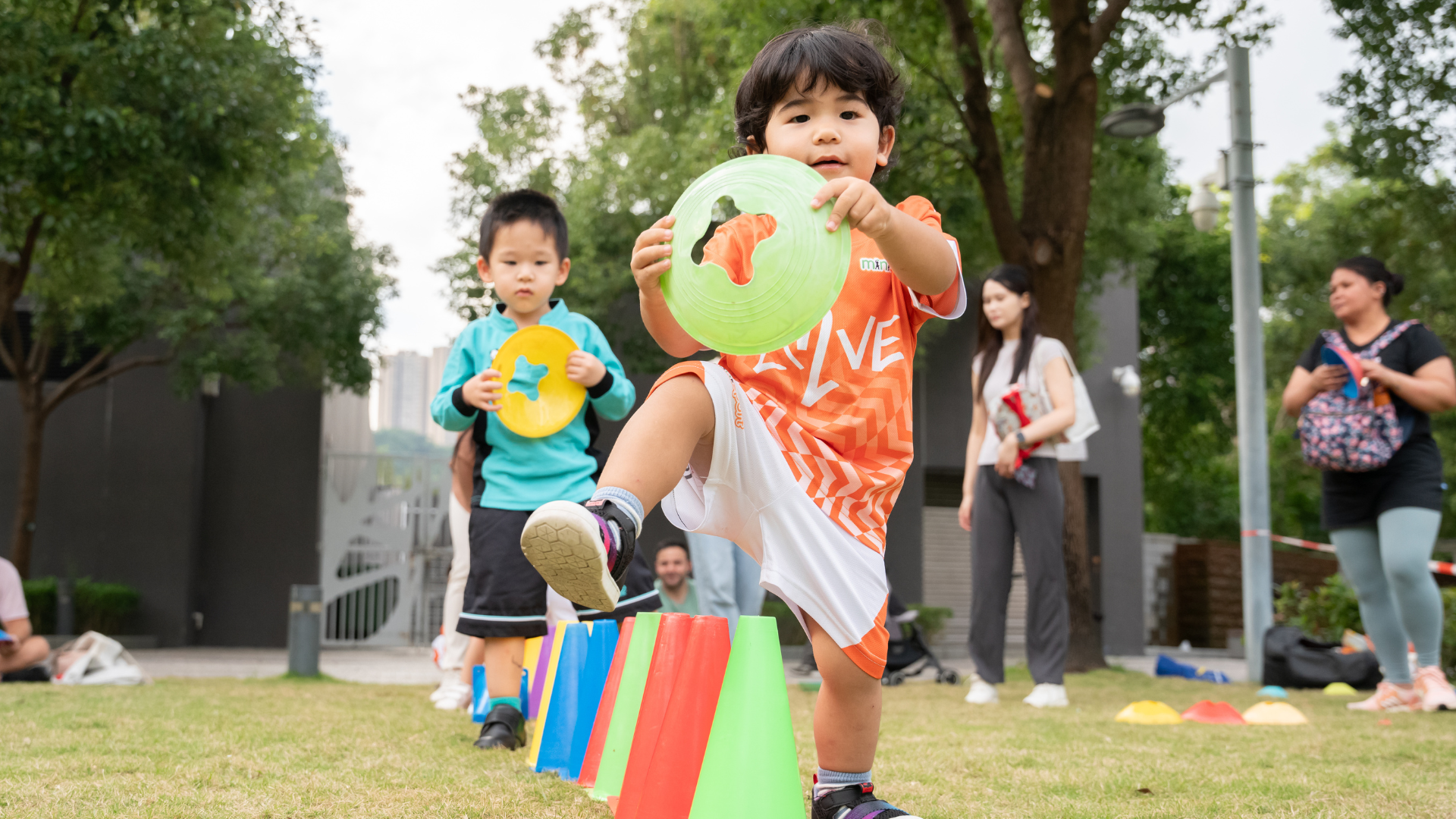Multi-Sport vs. Specialisation: Why Variety Wins in the Early Years
When it comes to choosing sports for your child, many parents ask: should we pick one sport and stick with it, or explore different options first?
When it comes to choosing sports for your child, many parents ask: should we pick one sport and stick with it, or explore different options first?
For young children, especially in Singapore’s early years environment, the answer is clear - variety is the smarter path. While early specialisation can sound appealing, research shows that exploring different sports during the early years sets a stronger foundation for lifelong learning, confidence, and health.
Building stronger bodies and minds
Each sport develops a different set of skills. Football builds agility and coordination, tennis improves balance and focus, rugby strengthens teamwork and courage, while athletics, basketball, and hockey encourage speed, rhythm, and precision. Together, they teach children how to move in many ways, not just one.
This mix helps develop the brain too. Studies show that children who experience a variety of movements form better neural connections, improving both motor control and problem-solving abilities. It’s like learning multiple languages: the more patterns they experience, the easier it becomes to learn new ones later.
Avoiding burnout and injury
Focusing on a single sport too early can lead to overuse injuries or loss of motivation, according to recent research. Repeating the same movements again and again puts stress on growing joints and muscles. It can also create pressure or boredom if the child doesn’t yet know what they truly enjoy.
By keeping sport varied, children stay active without feeling stuck in a routine. Every new game or skill brings something fresh to look forward to.

Supporting emotional and social growth
In a multi-sport environment, children constantly adapt to new situations. They experience winning and losing in different contexts, learn to communicate with various teammates, and practise empathy when others struggle.
These experiences teach flexibility and resilience, which are qualities that help far beyond the field. Trying different sports also exposes children to a range of coaching styles, helping them grow comfortable with different kinds of guidance and feedback.
When to specialise
Experts generally recommend waiting until children are around 12 or older before specialising. By then, they have built a strong physical foundation, discovered their genuine interests, and developed the focus needed for more structured training.
Before that, the goal is simple: move often, try new things, and keep sport fun.
The Minisport approach
At Minisport, our early years programme introduces children to six core sports - football, rugby, tennis, basketball, hockey, and athletics - through playful, age-appropriate classes. This broad foundation helps them grow into capable, confident movers who can choose their future sports with joy, not pressure.
For young children, especially in Singapore’s early years environment, the answer is clear - variety is the smarter path. While early specialisation can sound appealing, research shows that exploring different sports during the early years sets a stronger foundation for lifelong learning, confidence, and health.
Building stronger bodies and minds
Each sport develops a different set of skills. Football builds agility and coordination, tennis improves balance and focus, rugby strengthens teamwork and courage, while athletics, basketball, and hockey encourage speed, rhythm, and precision. Together, they teach children how to move in many ways, not just one.
This mix helps develop the brain too. Studies show that children who experience a variety of movements form better neural connections, improving both motor control and problem-solving abilities. It’s like learning multiple languages: the more patterns they experience, the easier it becomes to learn new ones later.
Avoiding burnout and injury
Focusing on a single sport too early can lead to overuse injuries or loss of motivation, according to recent research. Repeating the same movements again and again puts stress on growing joints and muscles. It can also create pressure or boredom if the child doesn’t yet know what they truly enjoy.
By keeping sport varied, children stay active without feeling stuck in a routine. Every new game or skill brings something fresh to look forward to.

Supporting emotional and social growth
In a multi-sport environment, children constantly adapt to new situations. They experience winning and losing in different contexts, learn to communicate with various teammates, and practise empathy when others struggle.
These experiences teach flexibility and resilience, which are qualities that help far beyond the field. Trying different sports also exposes children to a range of coaching styles, helping them grow comfortable with different kinds of guidance and feedback.
When to specialise
Experts generally recommend waiting until children are around 12 or older before specialising. By then, they have built a strong physical foundation, discovered their genuine interests, and developed the focus needed for more structured training.
Before that, the goal is simple: move often, try new things, and keep sport fun.
The Minisport approach
At Minisport, our early years programme introduces children to six core sports - football, rugby, tennis, basketball, hockey, and athletics - through playful, age-appropriate classes. This broad foundation helps them grow into capable, confident movers who can choose their future sports with joy, not pressure.
Latest posts
Discover why children praised as "gifted" or "smart" often struggle more than their peers. Learn how shifting from talent-based to effort-based praise builds resilience, reduces perfectionism, and unlocks true potential. Evidence-based insights from Stanford research on growth mindset vs. fixed mindset in child development.
Struggling with toddler tantrums and power struggles? This evidence-based guide for Singapore parents explains when to negotiate with your toddler and when to stand firm. Learn research-backed strategies including limited choices, clear boundaries, and playful alternatives that reduce conflict and build your child's confidence. Discover how to balance modern parenting approaches with practical solutions that work for busy families.

